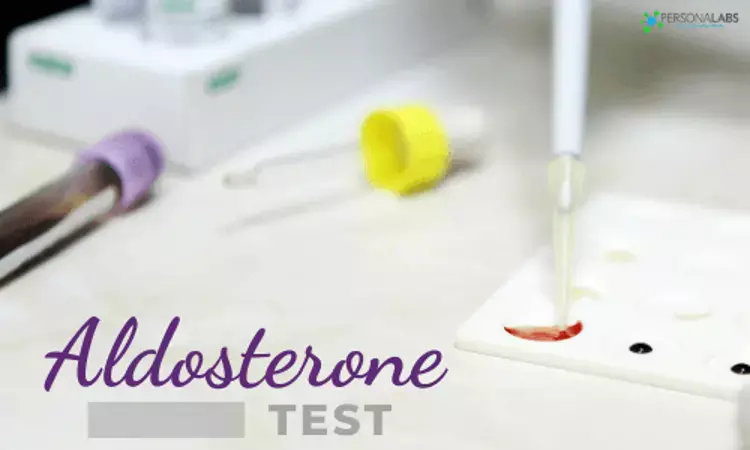- Home
- Medical news & Guidelines
- Anesthesiology
- Cardiology and CTVS
- Critical Care
- Dentistry
- Dermatology
- Diabetes and Endocrinology
- ENT
- Gastroenterology
- Medicine
- Nephrology
- Neurology
- Obstretics-Gynaecology
- Oncology
- Ophthalmology
- Orthopaedics
- Pediatrics-Neonatology
- Psychiatry
- Pulmonology
- Radiology
- Surgery
- Urology
- Laboratory Medicine
- Diet
- Nursing
- Paramedical
- Physiotherapy
- Health news
- Fact Check
- Bone Health Fact Check
- Brain Health Fact Check
- Cancer Related Fact Check
- Child Care Fact Check
- Dental and oral health fact check
- Diabetes and metabolic health fact check
- Diet and Nutrition Fact Check
- Eye and ENT Care Fact Check
- Fitness fact check
- Gut health fact check
- Heart health fact check
- Kidney health fact check
- Medical education fact check
- Men's health fact check
- Respiratory fact check
- Skin and hair care fact check
- Vaccine and Immunization fact check
- Women's health fact check
- AYUSH
- State News
- Andaman and Nicobar Islands
- Andhra Pradesh
- Arunachal Pradesh
- Assam
- Bihar
- Chandigarh
- Chattisgarh
- Dadra and Nagar Haveli
- Daman and Diu
- Delhi
- Goa
- Gujarat
- Haryana
- Himachal Pradesh
- Jammu & Kashmir
- Jharkhand
- Karnataka
- Kerala
- Ladakh
- Lakshadweep
- Madhya Pradesh
- Maharashtra
- Manipur
- Meghalaya
- Mizoram
- Nagaland
- Odisha
- Puducherry
- Punjab
- Rajasthan
- Sikkim
- Tamil Nadu
- Telangana
- Tripura
- Uttar Pradesh
- Uttrakhand
- West Bengal
- Medical Education
- Industry
Testing for Primary Aldosteronism is low among U.S Veterans: Study

In a recent study, Jordana B. Cohen, M.D., MSCE, and colleagues have reported low adherence to guideline-recommended practices for primary aldosteronism testing among smaller health systems which reinforces the prior awareness. The research findings have been published in the journal Annals of Internal Medicine on 29 December 2020.
Primary aldosteronism is a common cause of secondary hypertension and treatment-resistant hypertension. Treatment with adrenalectomy or mineralocorticoid receptor-blockers can prevent long-term adverse outcomes. Testing practices for primary aldosteronism, remained inadequate over nearly 2 decades, according to a large study of Veterans Health Administration data. Researchers conducted a study among U.S veterans to evaluate testing rates for primary aldosteronism and evidence-based hypertension management in patients with treatment-resistant hypertension.
It was a retrospective cohort study assessing 269 010 Veterans with apparent treatment-resistant hypertension from 2000 to 2017, defined as either 2 blood pressures (BPs) of at least 140 mm Hg (systolic) or 90 mm Hg (diastolic) at least 1 month apart during the use of 3 antihypertensive agents (including a diuretic), or hypertension requiring 4 antihypertensive classes. The primary endpoint assessed was testing for primary aldosteronism. Researchers also evaluated the initiation of mineralocorticoid receptor antagonists (MRA) treatment and change in systolic blood pressure over time.
Key findings of the study were:
• Among 269 010 patients, researchers identified 4277 (1.6%) patients who were tested for primary aldosteronism.
• They noted, Veterans were more likely to be tested for primary aldosteronism if they had a consultation with nephrologists (HR 2.05) or endocrinologists (HR 2.48) when compared with primary care (cardiologists).
• They reported testing was associated with a 4-fold higher likelihood of initiating MRA therapy (HR, 4.10) and with better BP control over time.
• Overall, the researchers observed less than 2% of patients with incident apparent treatment-resistant hypertension underwent guideline-recommended testing for primary aldosteronism.
The authors concluded, "In a nationally distributed cohort of veterans with apparent treatment-resistant hypertension, testing for primary aldosteronism was rare and was associated with higher rates of evidence-based treatment with MRAs and better longitudinal BP control".
They further added, "The findings reinforce prior observations of low adherence to guideline-recommended practices in smaller health systems and underscore the urgent need for improved management of patients with treatment-resistant hypertension".
For further information:
https://www.acpjournals.org/doi/full/10.7326/M20-4873
Medical Dialogues Bureau consists of a team of passionate medical/scientific writers, led by doctors and healthcare researchers. Our team efforts to bring you updated and timely news about the important happenings of the medical and healthcare sector. Our editorial team can be reached at editorial@medicaldialogues.in.
Dr Kamal Kant Kohli-MBBS, DTCD- a chest specialist with more than 30 years of practice and a flair for writing clinical articles, Dr Kamal Kant Kohli joined Medical Dialogues as a Chief Editor of Medical News. Besides writing articles, as an editor, he proofreads and verifies all the medical content published on Medical Dialogues including those coming from journals, studies,medical conferences,guidelines etc. Email: drkohli@medicaldialogues.in. Contact no. 011-43720751


